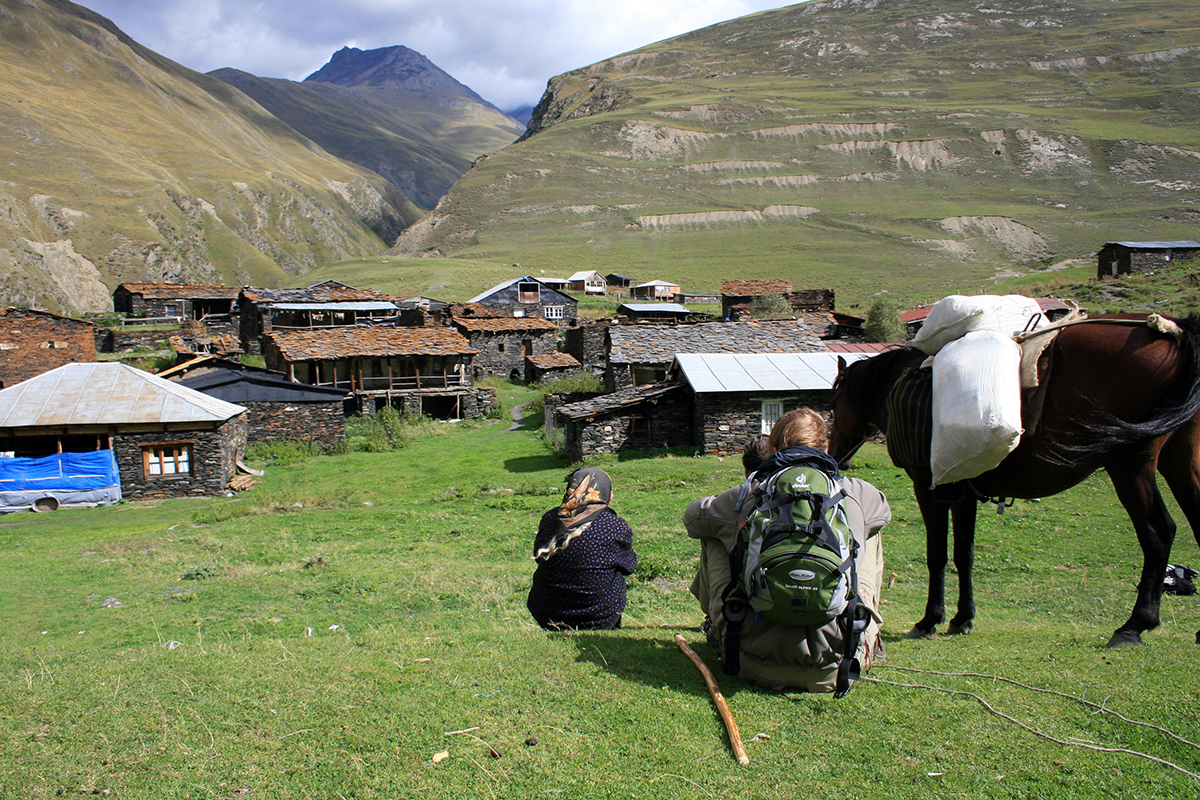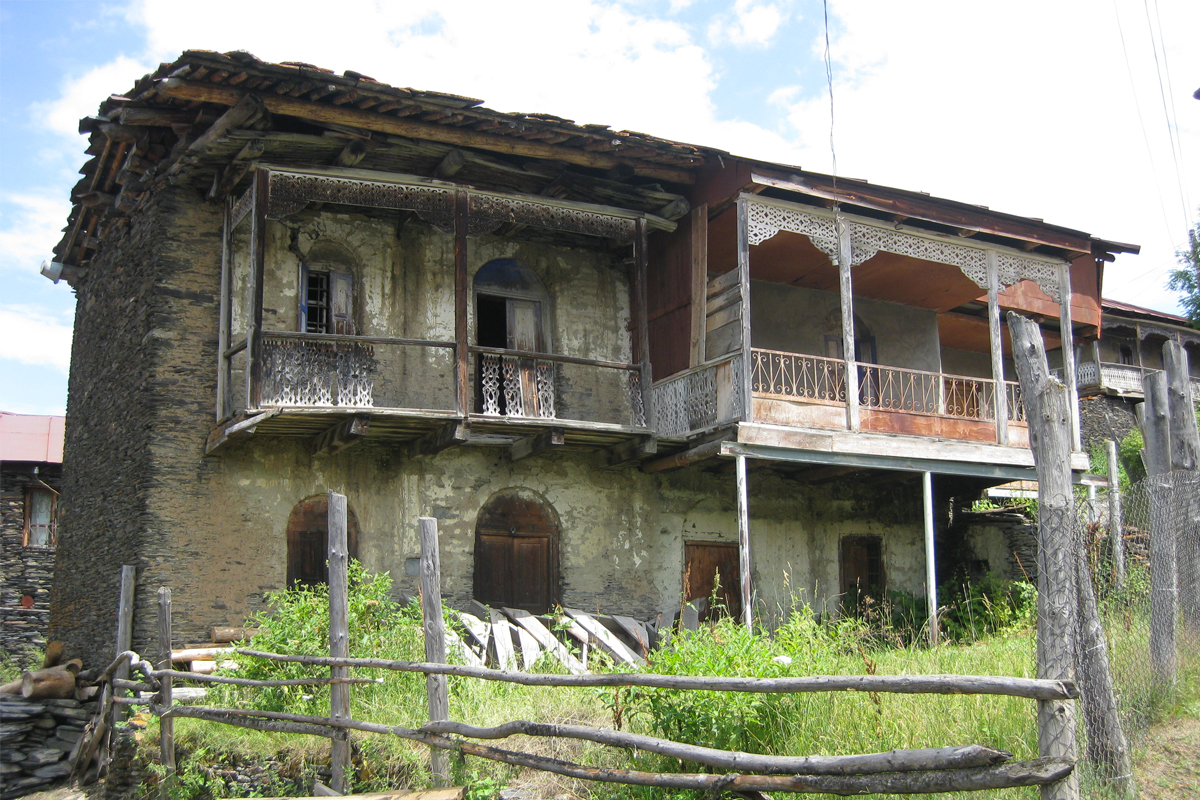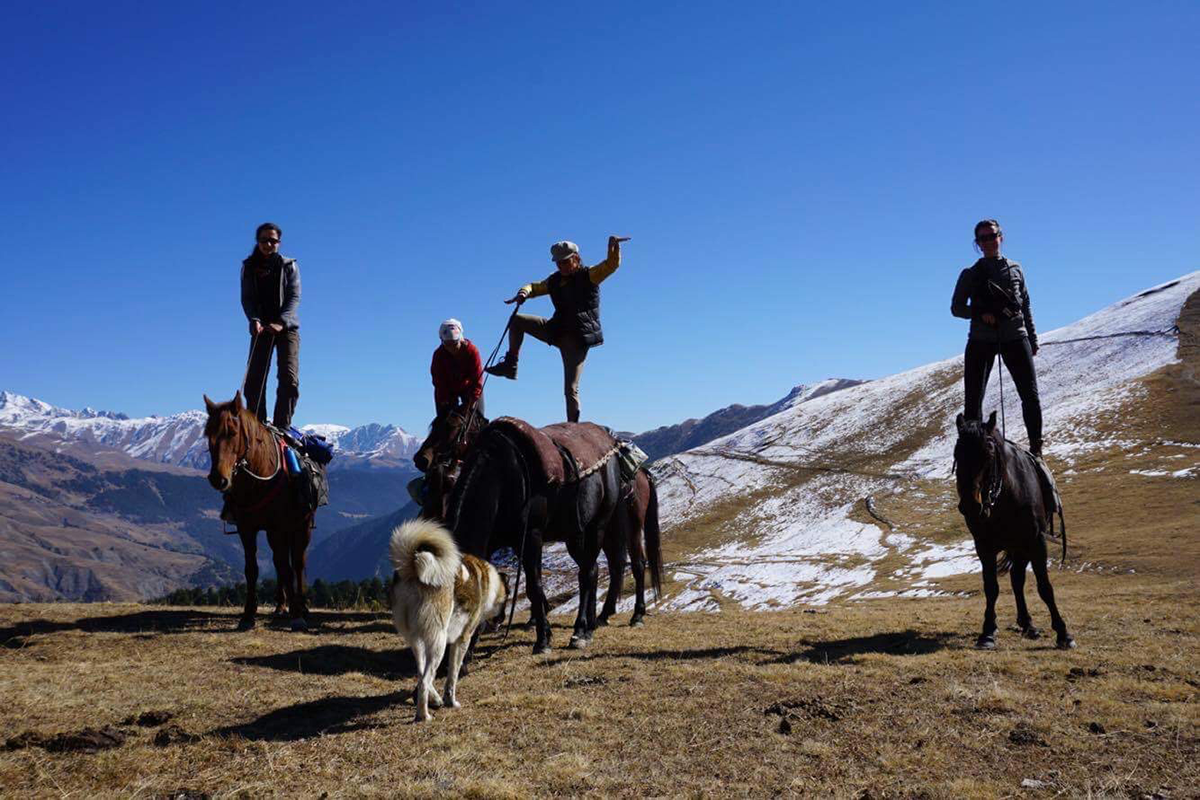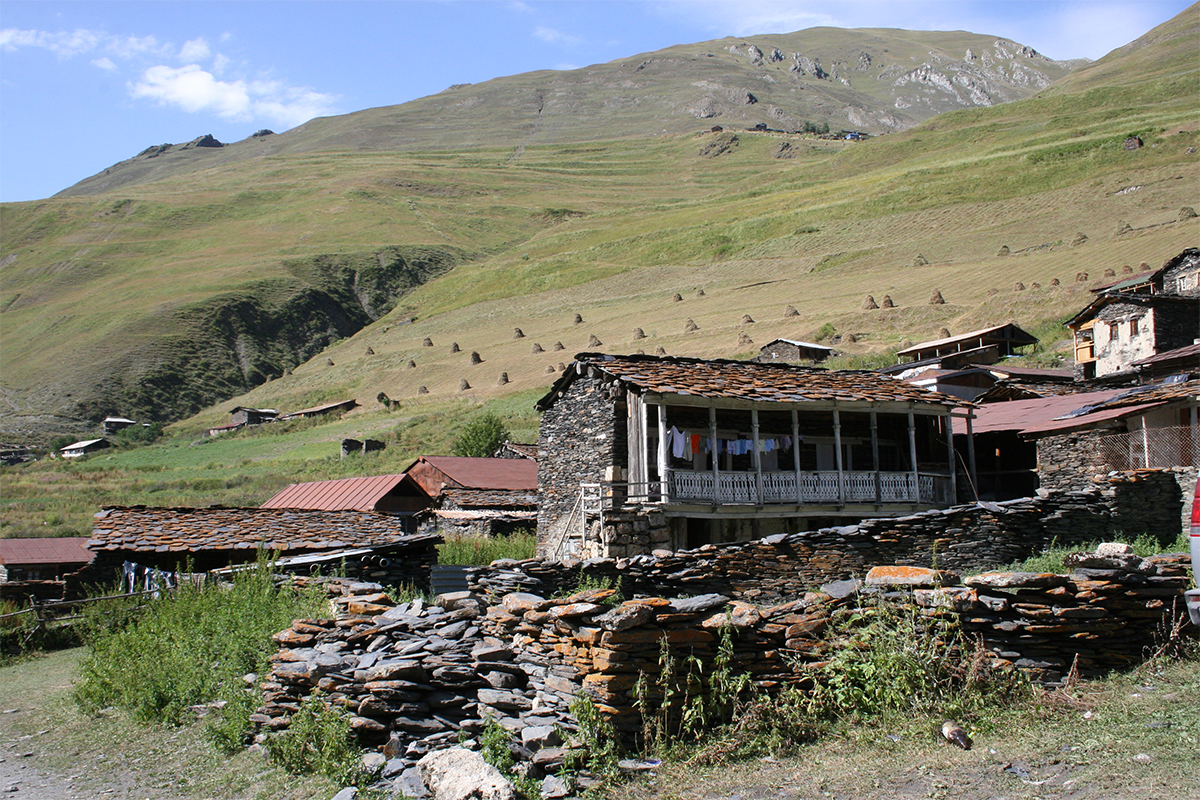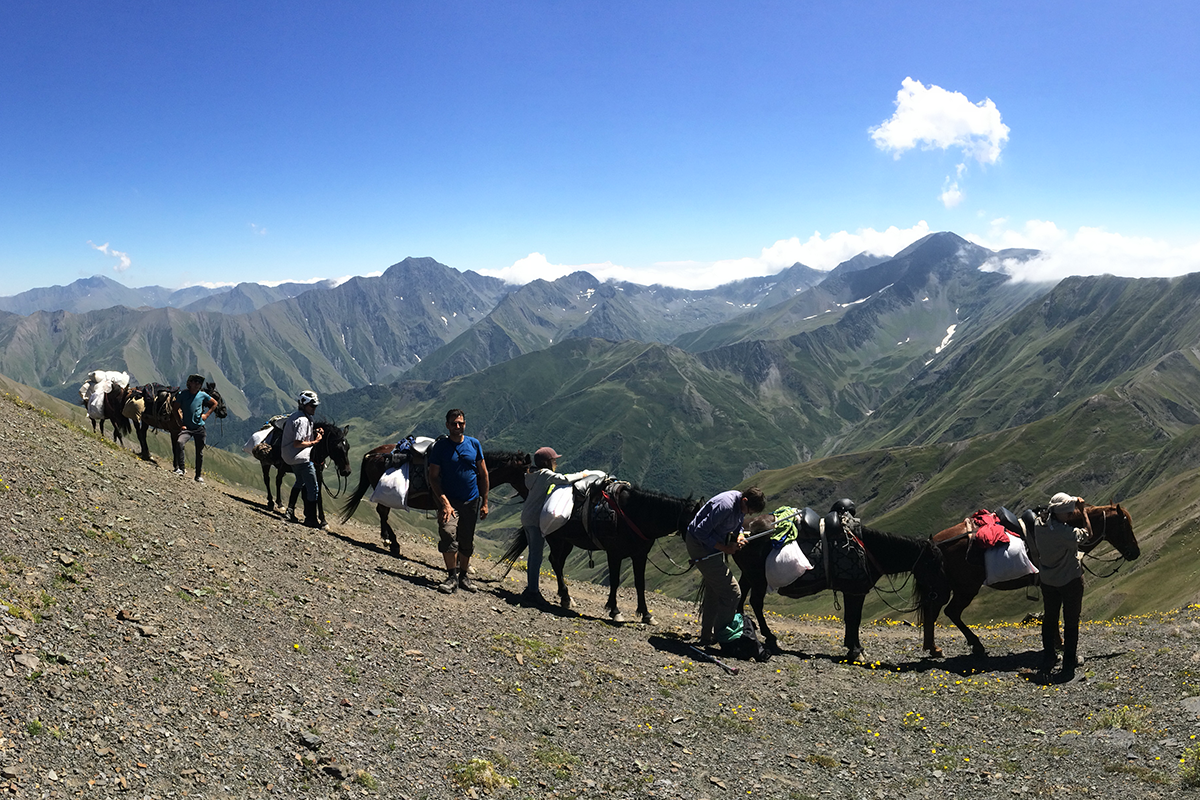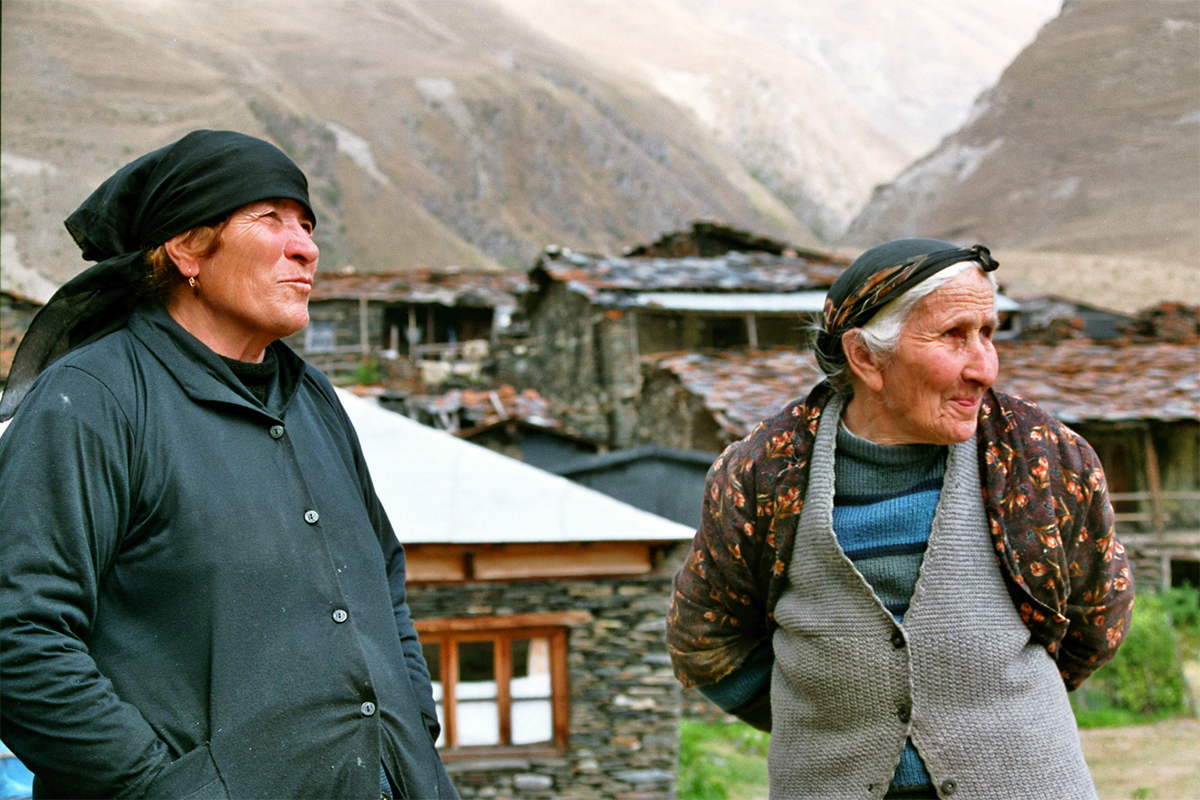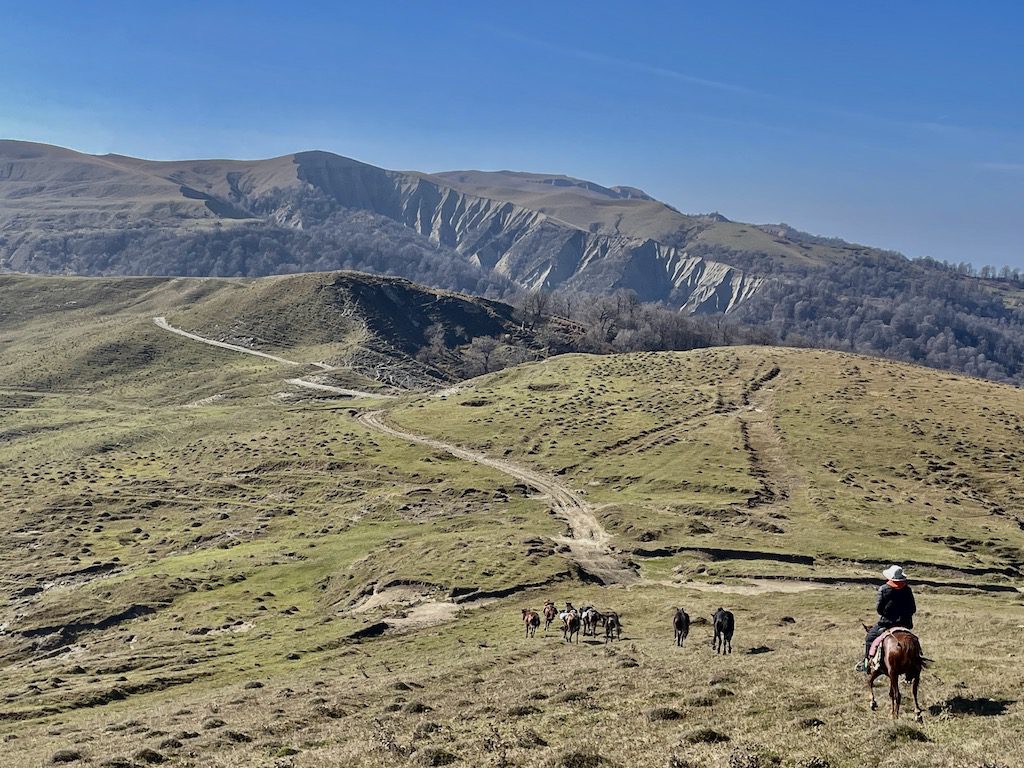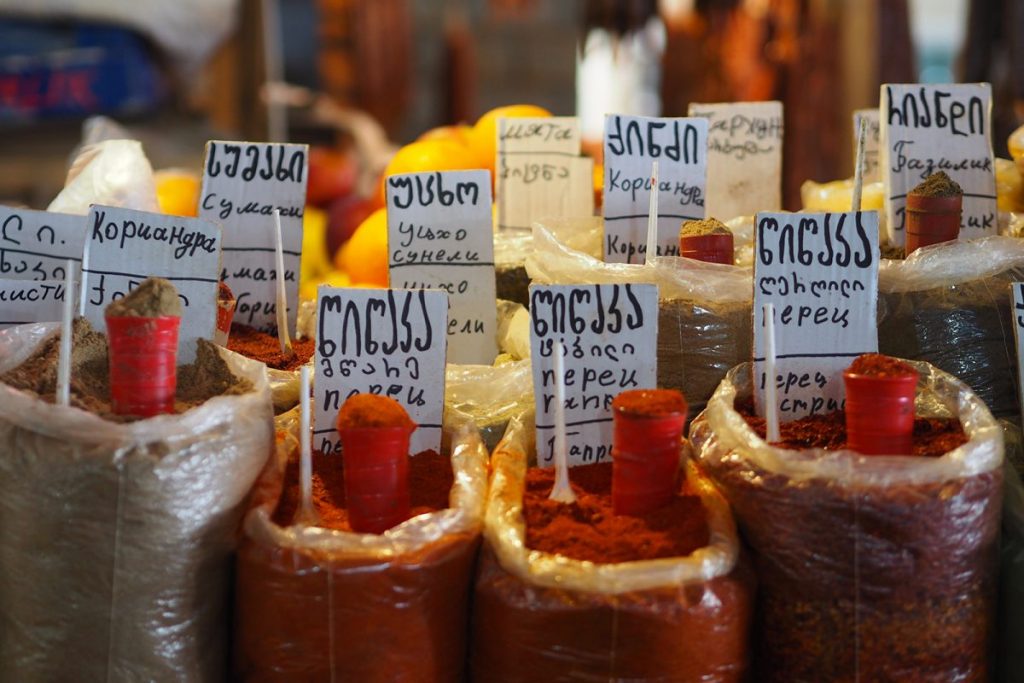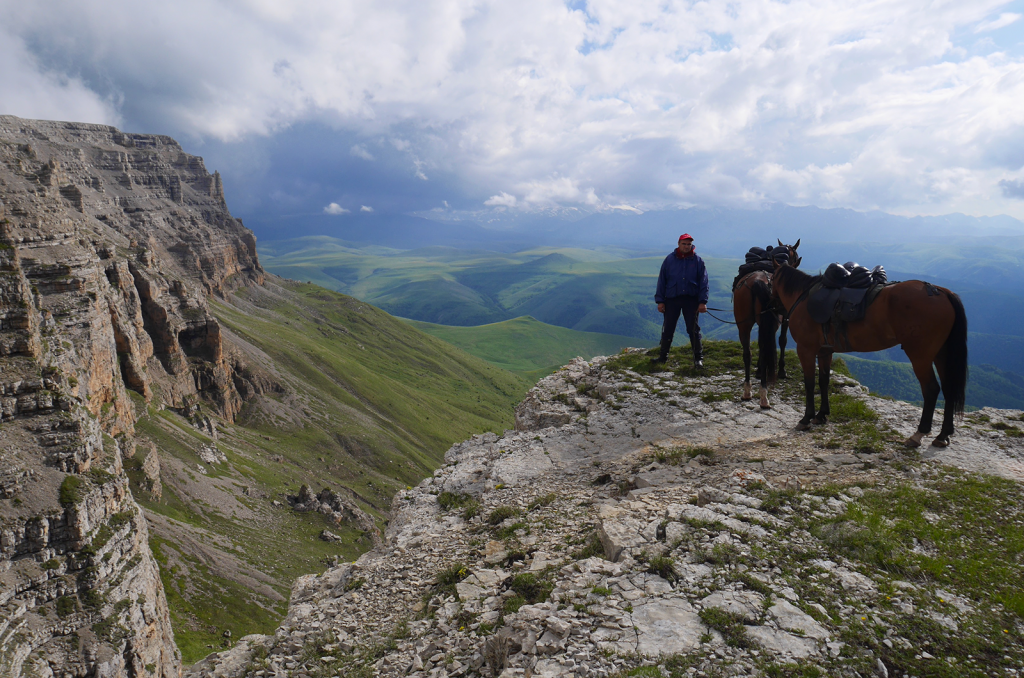
Period of travel
From May to November. individual booking and private group on request

Hike
On request from 5-6 persons
THE TUSHETI MOUNTAINS IN GEORGIA
THE TUSHETI REGION
The Tusheti region is located in the Great Caucasus mountains in Georgia. The only access leading to this area is a pathway which had been built by the Soviet after the 2nd WW and goes over a pass at almost 3000m high. The Tusheti is reachable by car from June to October that is the reason why it remains a very secluded mountainous region and the inhabitants, the Tushs, still live with their old manners and customs. Up to the construction of the pathway, most of the Tushs people were living there all the year around, isolated from the rest of the world. In the 17th century, in the kingdom of Kakheti which is located at the foot of the Caucasus mountains in Georgia was dramatically weakened by the permanent attacks from the Turks and Persian. The king Erekle 2 (1659) could not overcome the battles and even so the highlanders were considered as very dangerous but strong persons, he dared to ask them for some helps. The Tushs were living without king, prince or director but only with some heroes. One of the most famous heroes was Zezva Gaprindauli who gathered the Tushs and Xevsurs, a different ethnic group in the neighborhood of the Tushs and they all went down to fight again the Turk. As they liberated the village Bakhtrioni, the king wanted to reward them and asked Zezva what he would like to. Because they didn’t need gold neither money but some lands in the valley for my people to make their life smoother, Erekle proposed Zezva to take his horse and to gallop from the liberated village until the death of his horse. Since then and up to nowadays, all the territories between Bakhtrioni and the place where the horse died belong to the Tush. 3 villages were born: Qvemo Alvany, Zemo Alvany and a special one : Laliskhuri. From this period, little by little the Tushs left the highland to the valley. There are 2 migration waves: the first one took place in 1830 when the Tsova Tush left their valley after a landslide which devastated most of the villages. In the middle of the 20th century, the Chaghma Tush were forced to go down by the sovietization. At that time more than 50% of the Tush population were still living in the mountains. Nowadays some families still live there all the year without electricity and running water and have to be self sufficient more than 7 months. The Tushs are living from the cheese production and the cattle farming. A part of the population is still semi nomadic, the lasts of the Georgian Caucasus Mountains.
THE HORSES
We can easily say that a Tush was born on his horse. The horses are a work tool to gather the flock of sheep or used as pack horses to carry the cheese or some materials. As there is no road in Tusheti, the horse still remains the easiest, fastest and the most confortable way to travel from one point to another. The horses are also a finery which strengthens the image of a man! And finally they are implied in a lot of pagan rituals and have an important role into the pagan society.
ART OF LIVING AND OUR HERD OF HORSES
There is a different approach of time, money and art of living up there. And even if the environment roughness call us back to the reality, the magnificence of the landscapes, the simple way of life of the nomadic people, their deep traditions inspire a profound respect for the Tush people and the Tusheti region. And I have been living with them since 18 years, on the rhythm of the transhumance when we drive the flock of sheep and herd of horses up to the summer pasture in May and down to the wintering at the door of the semi desert ecosystem in October.
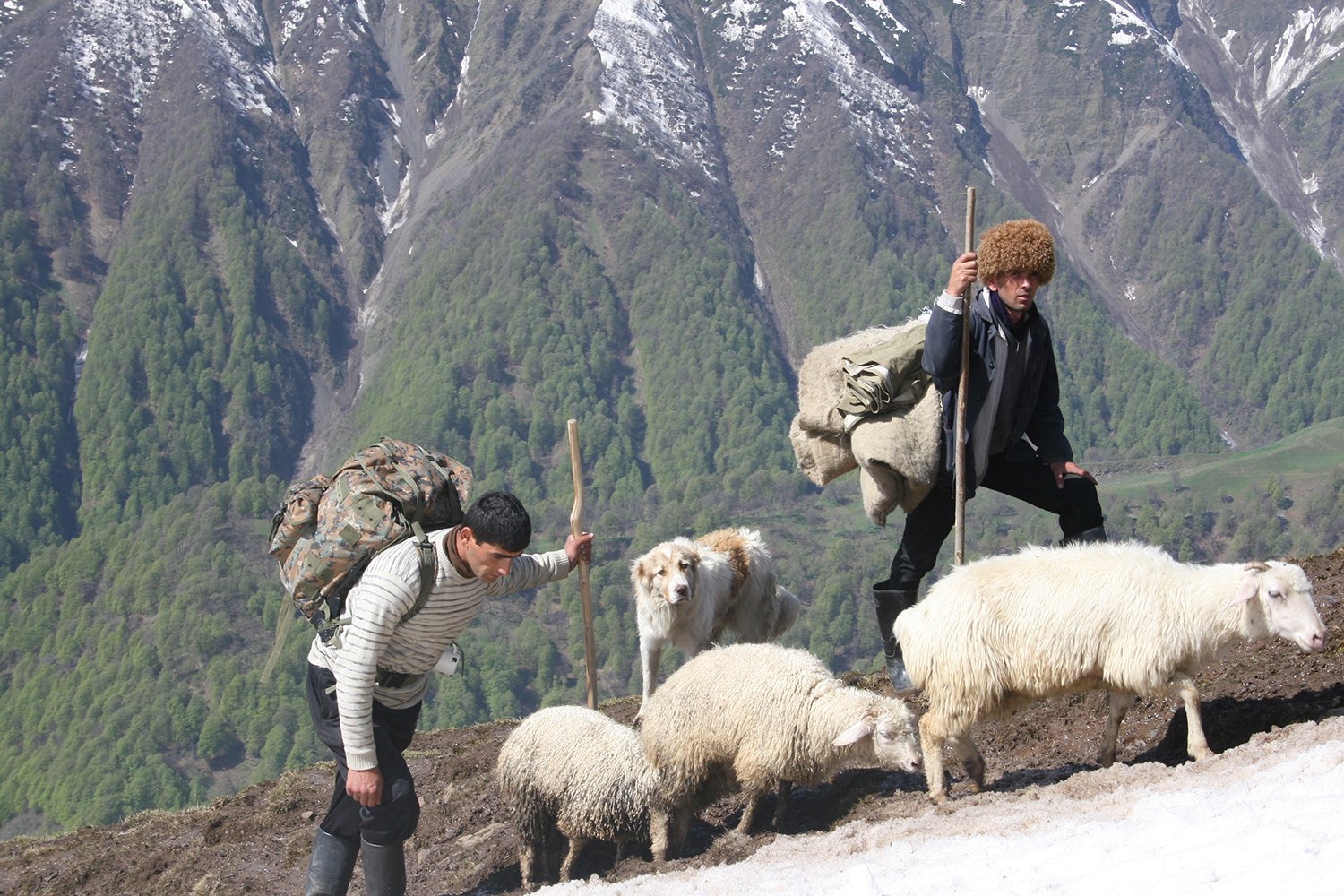
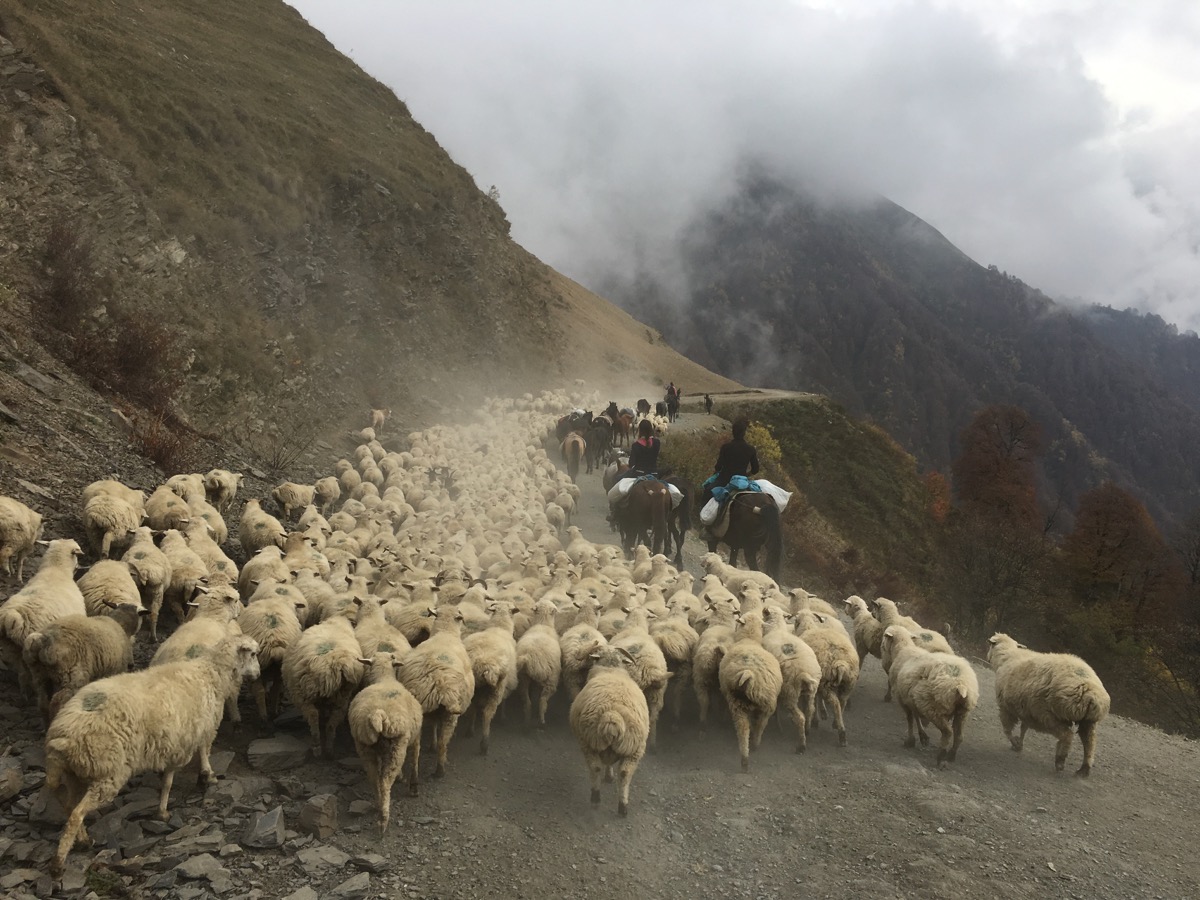
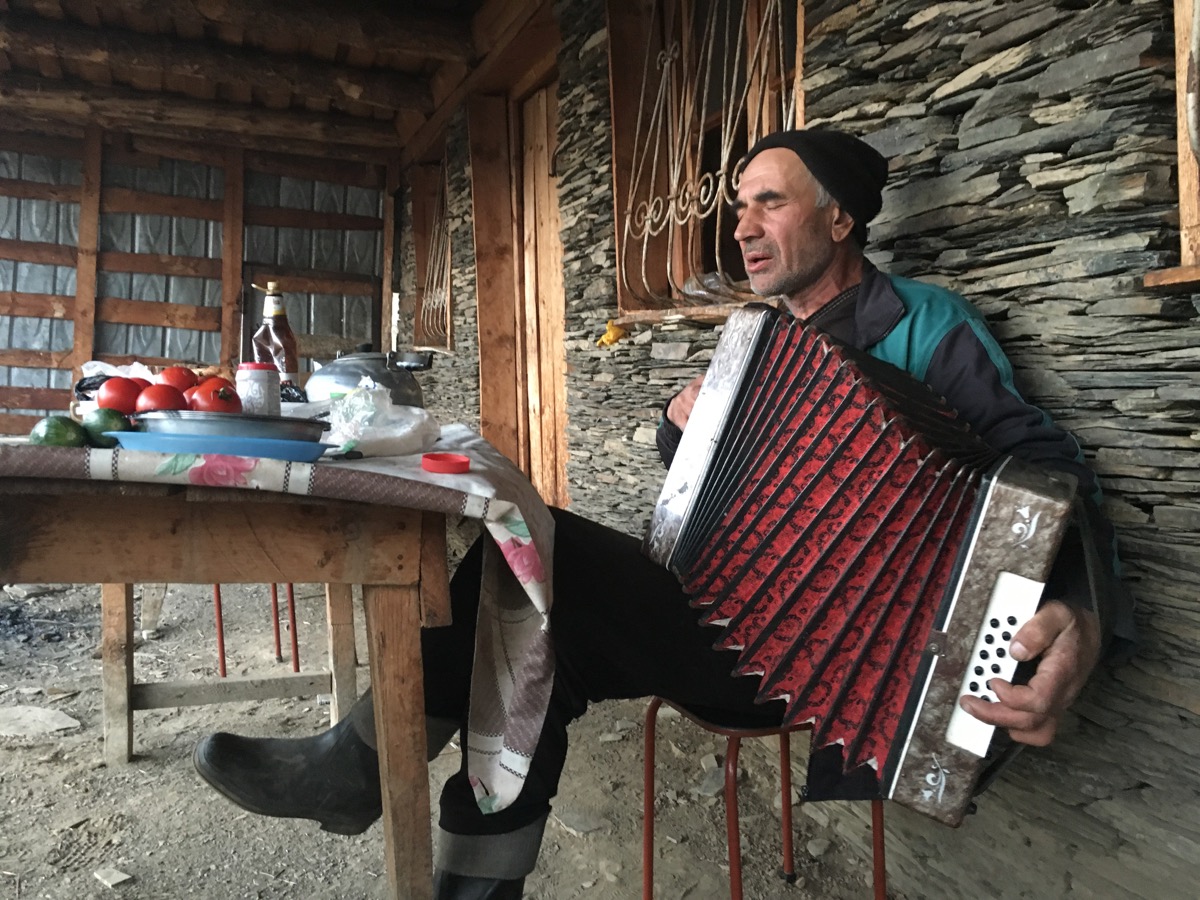
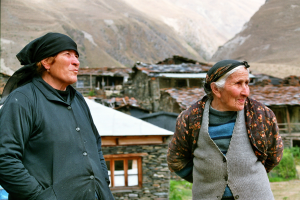
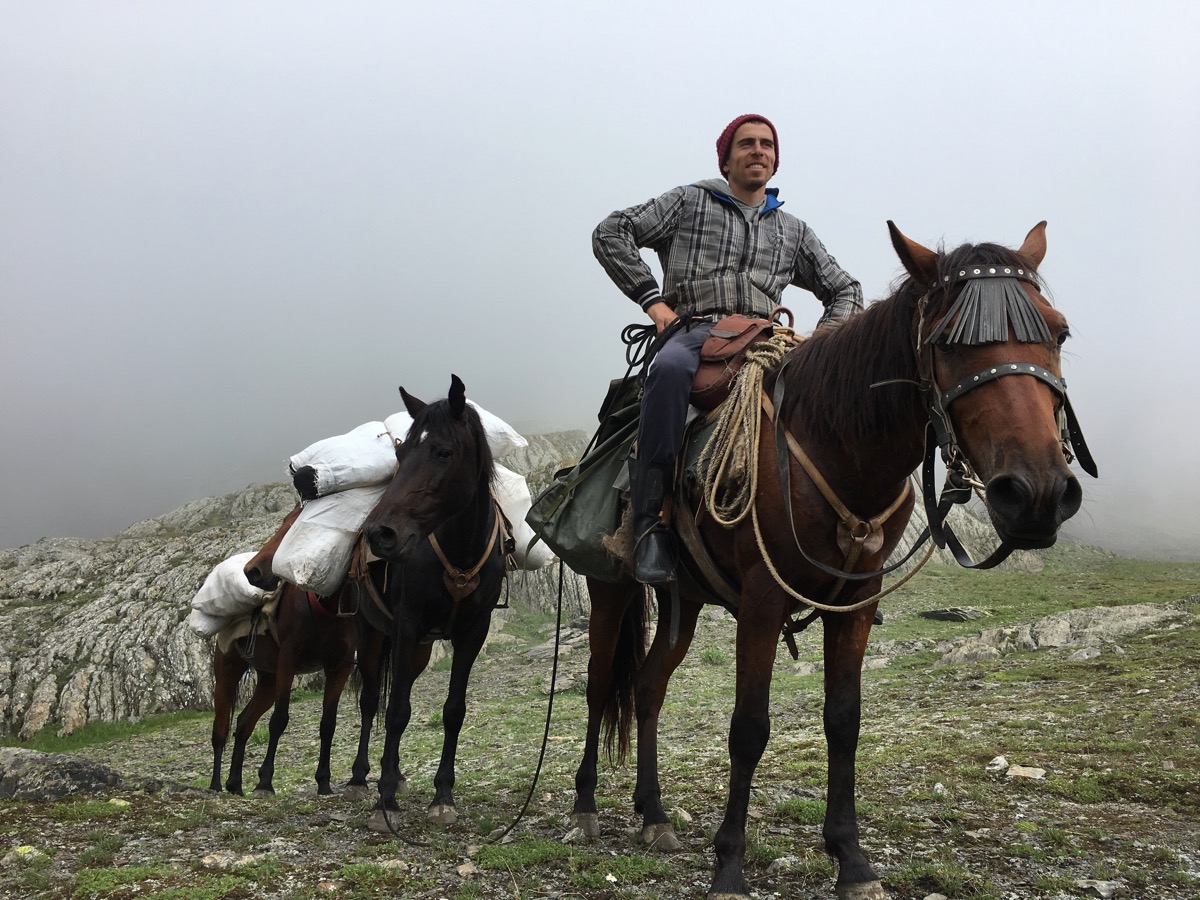
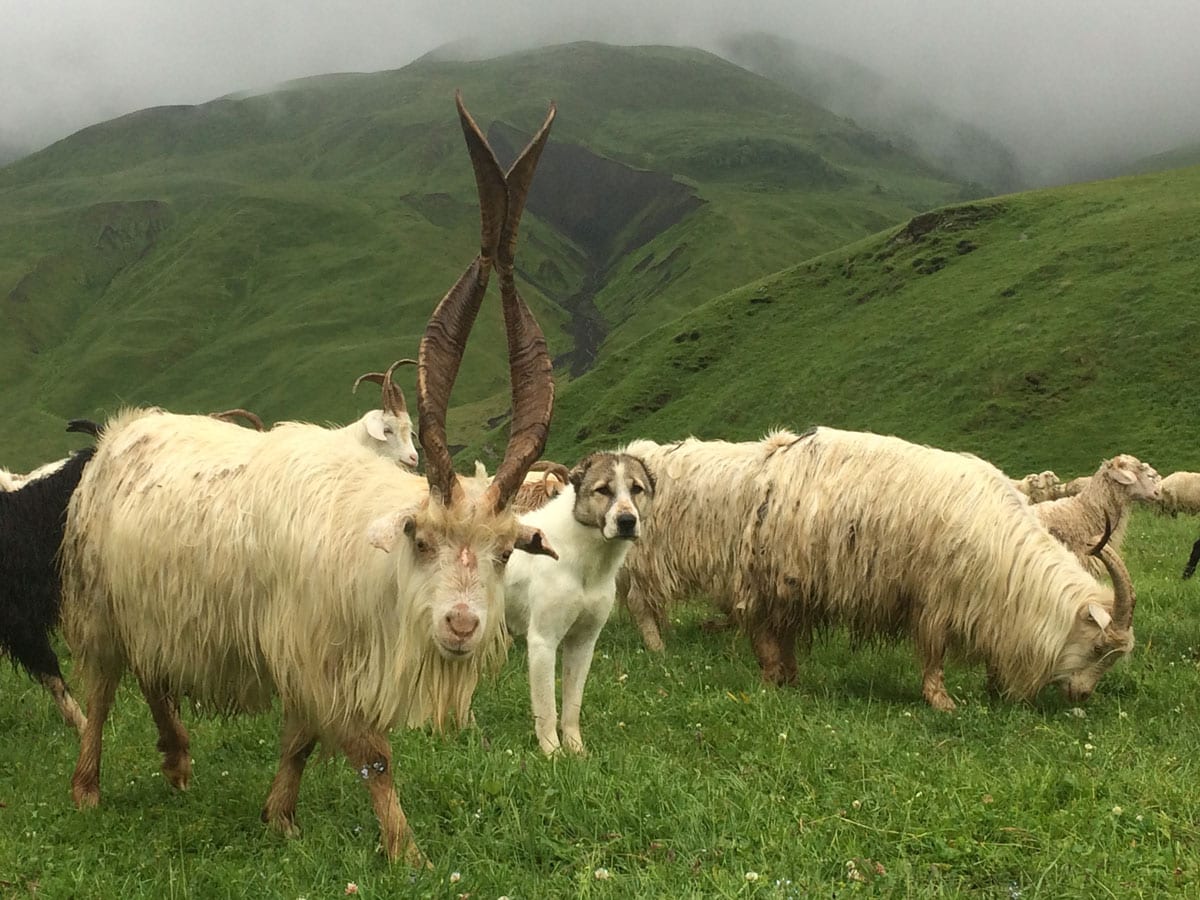
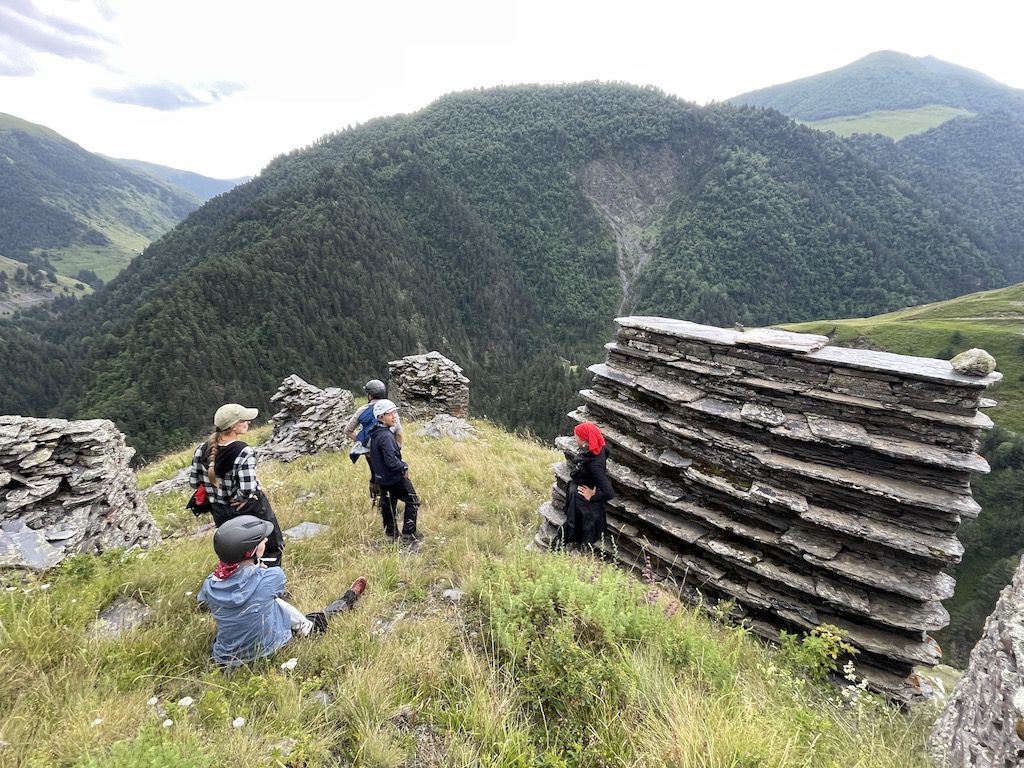
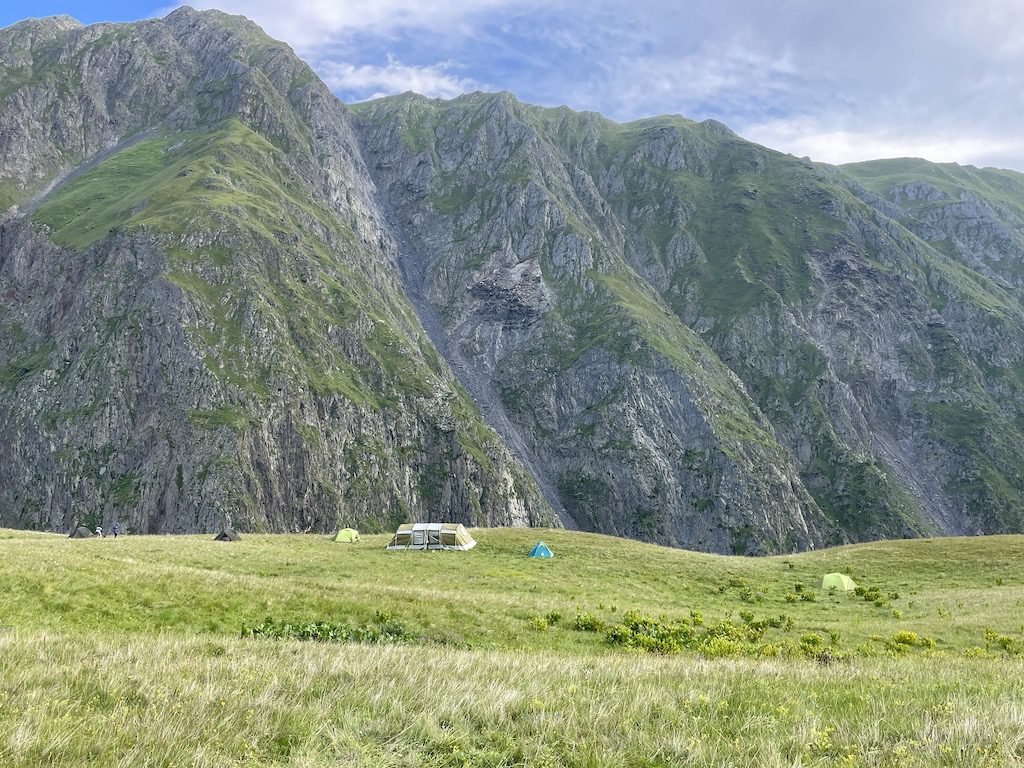
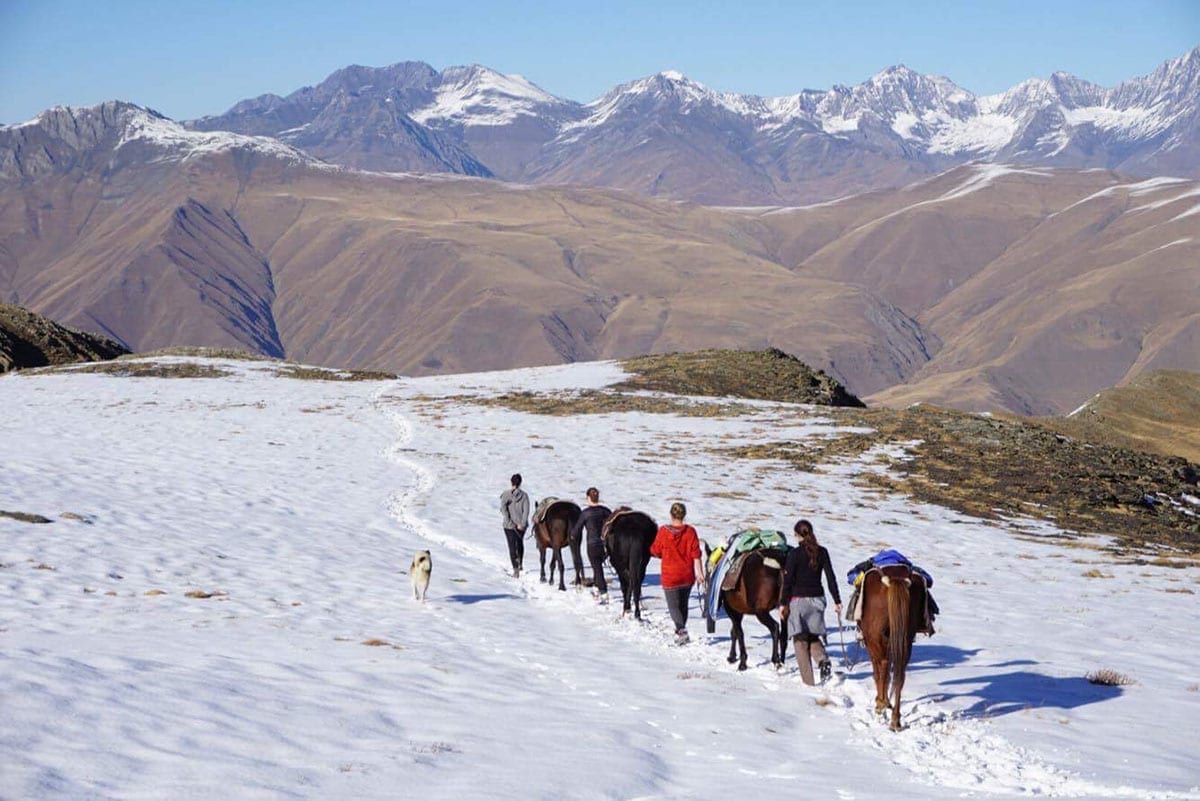
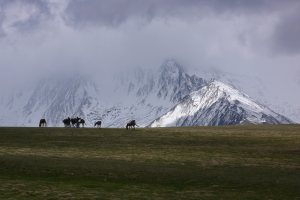
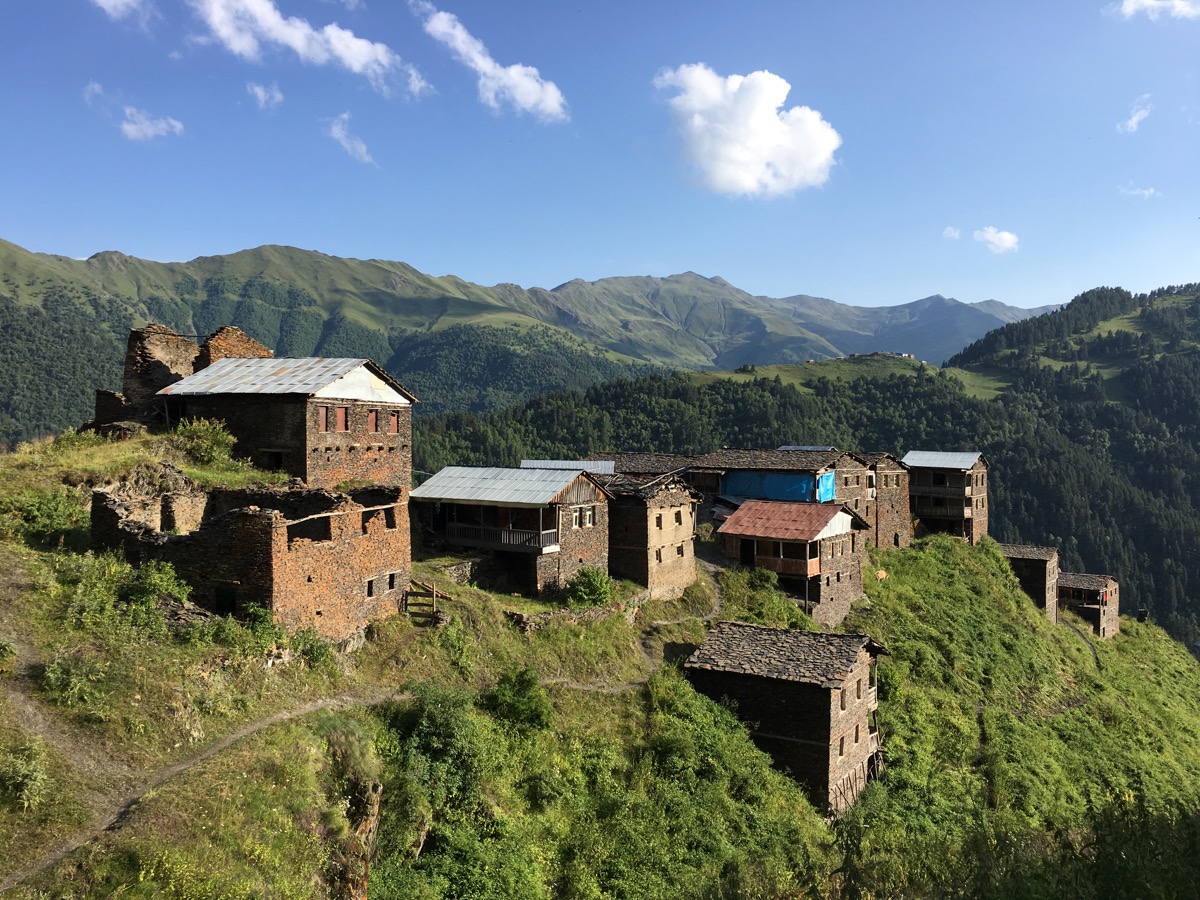
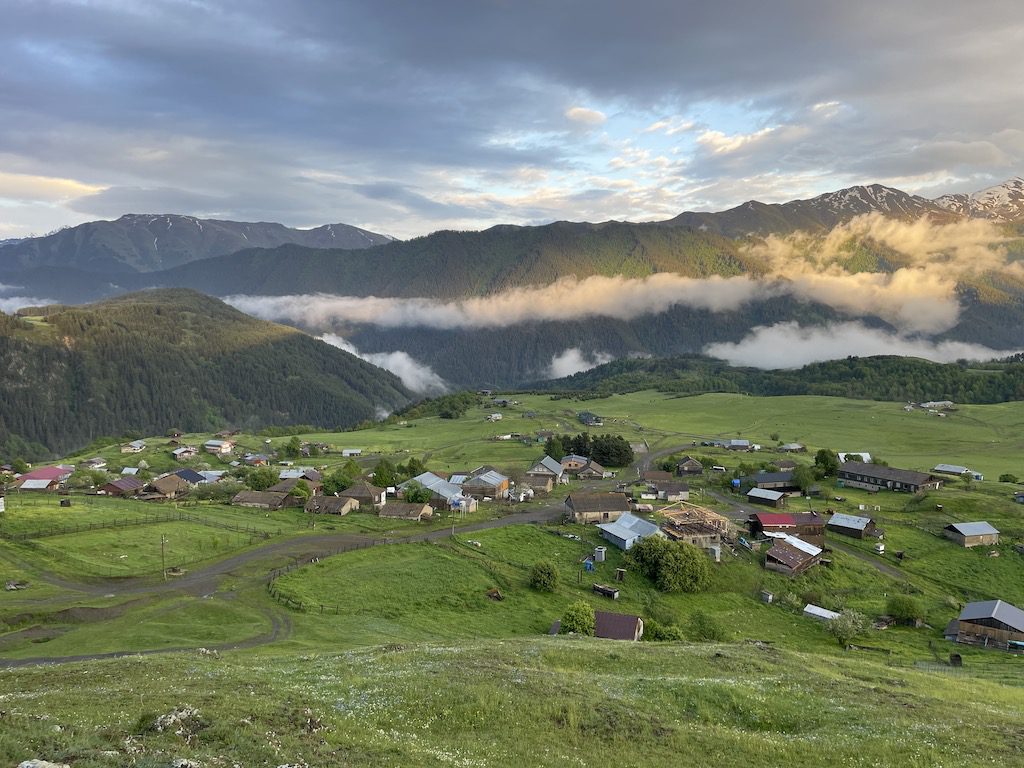
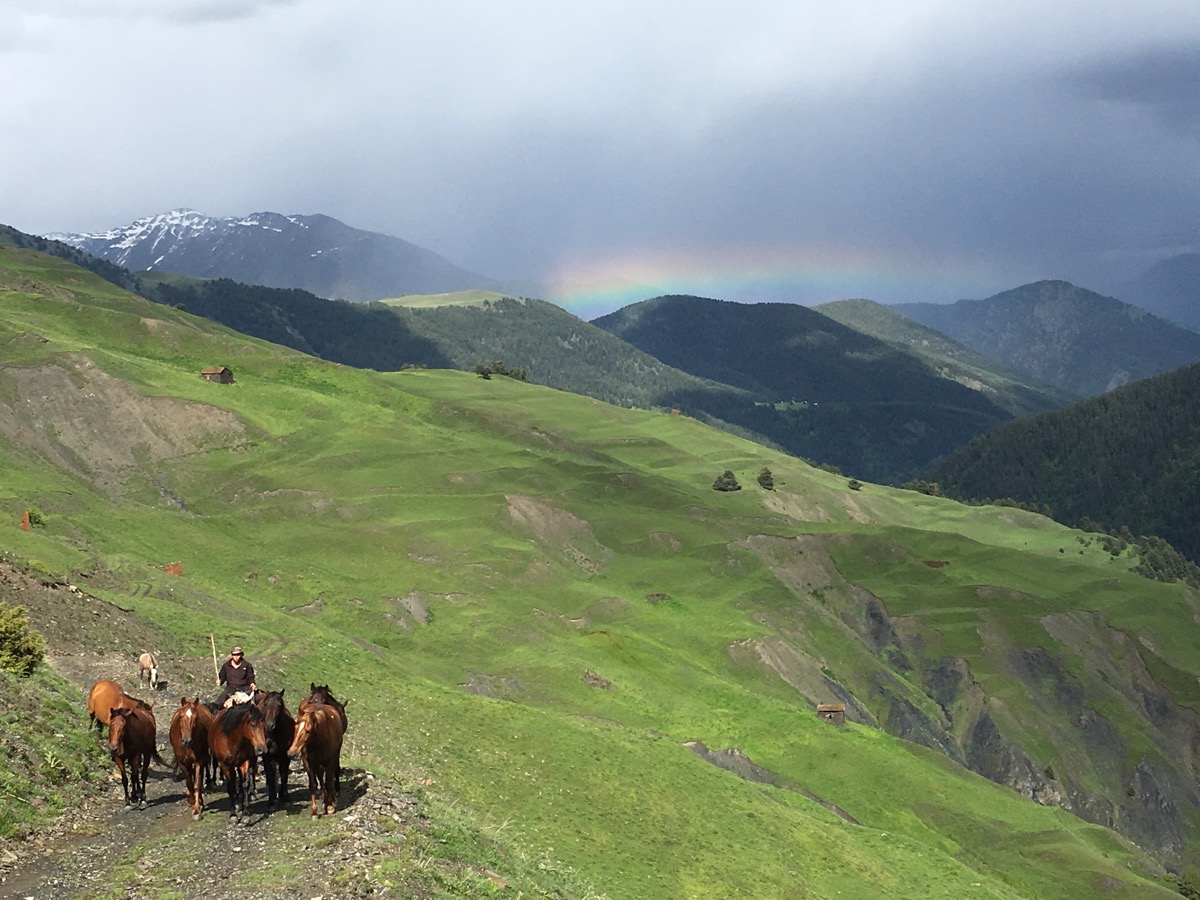
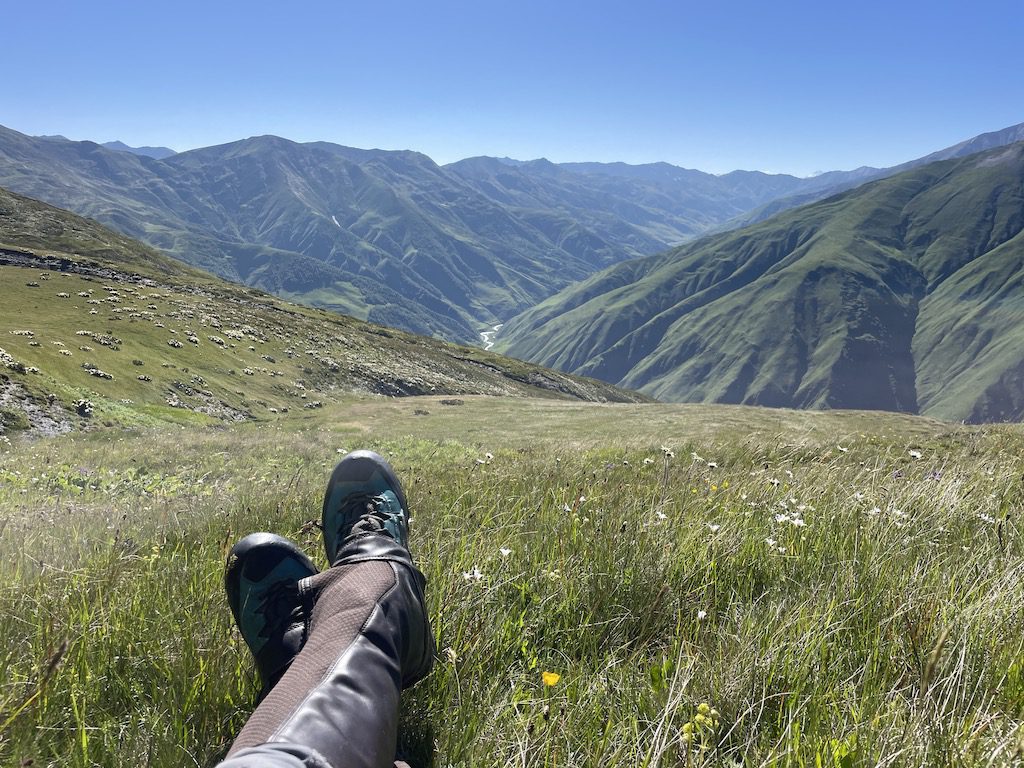
Glimpse on the hikes
Escape into the depths of the Caucasus, in the most isolated region of Georgia where the pagan traditions are still highly respected. Meet and get in contact with the local people, experience the remoteness and wilderness of the Tusheti National Park, overnight in the traditional Tush house. Climb up on the crest which offer gorgeous panorama over the Great Caucasus chain, overnight in the middle of the nature and with the nature, enjoy the Tush cuisine, discover the cultural heritage of Georgia and the history of the Tush people. Stroll around in the Tbilisi small cobbled streets, drink a homemade limonade, visit the ethnographic or National museum.
Time:
June-October
Pratical details:
To enjoy an expedition in the Great Caucasus Mountains in the Tusheti area, plan to stay at least 2 weeks in Georgia. We supply all the necessary material to set up a camp which include double tent, one big tent, tableware. Note that for hygienic reasons the sleeping bag and floor mattress are not supplied.
The packhorses are carrying all the food, material and luggage. You are only carrying your daily staff. We cook everyday. Local and fresh food & cuisine. Overnight during the trek: traditional house and tent. (double tent and a big tent) Other overnight: Guesthouse and hotel 3/4* located in the very center of Tbilisi. Those expeditions are only organized on request for a minimum of 6 persons. How it works: You are an association, a group already formed with an idea or without, we build together a route. Depending on your physical conditions, we propose you an adapted itinerary which will be discussed until it matches your expectation. But don’t expect too much…just experience it:) If you are 1 or 2 or 3 persons I may find a group for you if your capabilities and wishes are matching those of the group. Contact us.
The Horses
They help us, carrying all the staff if you plan a self sufficient expedition.
The Tush are born on a horse. Before being able to walk they ride. They are horsemen, breed their horses which play an important role in the Tushs’ way of life as well as in the pagan traditions. It is not only a mean of transportation -as packhorse- when the semi nomad are driving their flock of sheep down to the winter pastures and up to the summer pastures or -like a mop- when galloping from one village to another but also it is part of a very old pagan ritual called Doghi. The Doghi is a horse race to commemorate one year’s death of a Tush. It helps the dead person to gain a social rank in the « second world, the world of the deceased ». The Tush mountain horses are middle size, very well balanced, calm, rustic and very smart. They know how to spare their energy to climb the mountains. The horses you will ride are belonging to Audrey. She breaks and trains them. The foals are following their mother on our itineraries from 2,5 months. They learn how to put their feet and find their balance on the rocks, small pathways and deep rivers. They are all living in herd and free all the year without any fences. During the winter (from November to May) they are resting as they have to resist to the climate and be strong and ready for the summer. During each horseback expedition they have one week off.
Entry Formalities:
No visa requested for European country citizens. Passport with a validity over 6 months when leaving the country is normally enough. For more and accurate information, check at the Georgian embassy in your country of residence.
Main City : Tbilisi
Language : Georgian, caucasian language, kartvelian group.
Money : Lari GEL. 1 euro=2,9 GEL
More info : https://fr.wikipedia.org/wiki/Géorgie_(pays)
ATTENTION : all products derived from Codeine molecules are strictly forbidden in Georgia. Please consult http://www.rs.ge/en/5982 as well as http://www.incb.org/ documents/Psychotropics/guidelines/travel-regulations/2013-travellers-update/ GEO_26_August_2014_Original_travellers_II_-_LTR_-_table.pdf MY TIPS : Do not even try to bring such drugs into Georgia. (codein/ tremadol)
To consult the guaranteed departures
Schedule of departures / availabilities
To get the detailed program day by day




